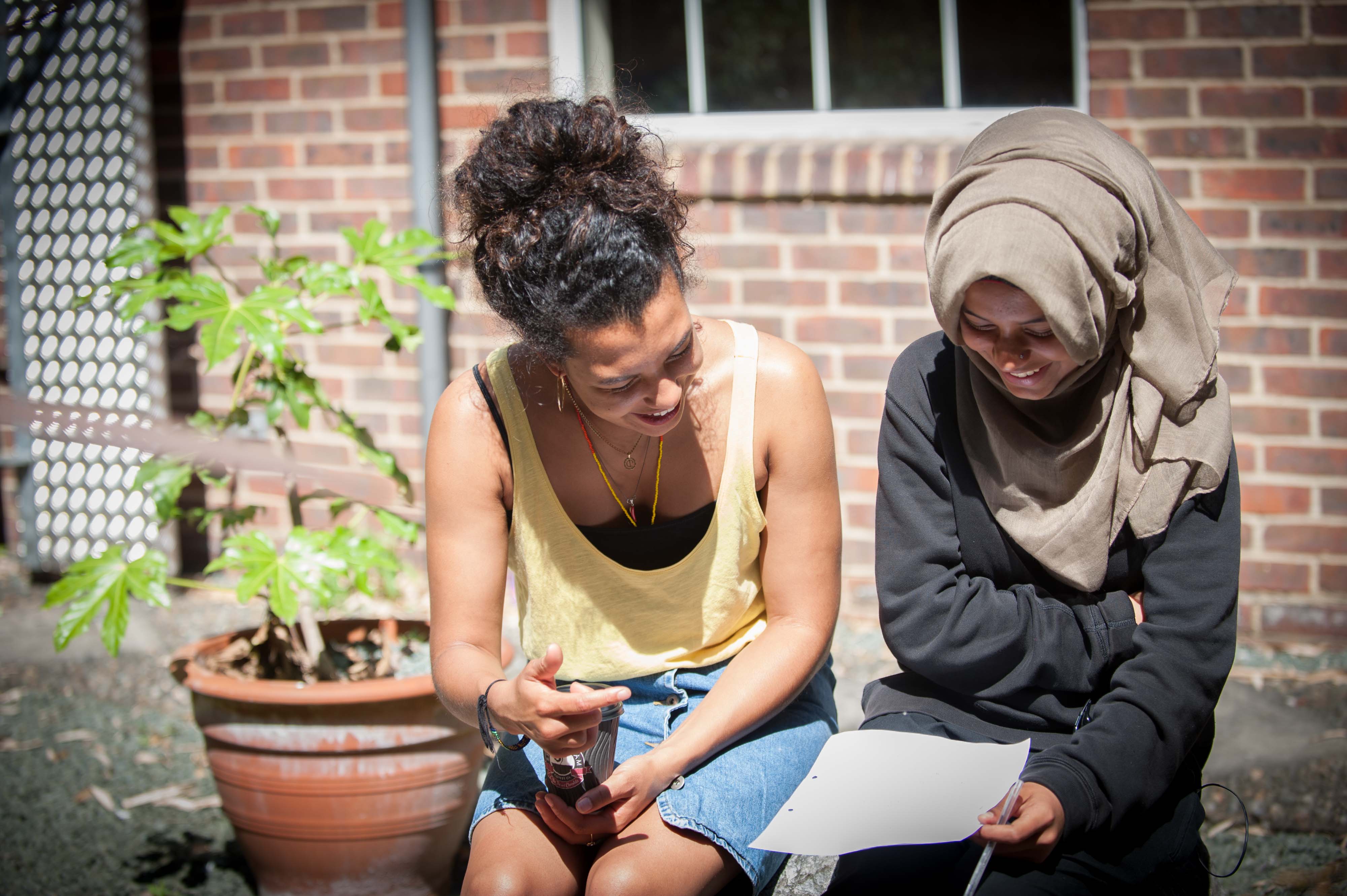Poetry can sometimes struggle to shake off its inaccessible label, particularly in the classroom. Mark Glover asks if it’s time to start dovetailing modern with the traditional?
Speaking to the National Youth Theatre’s Paul Roseby about gender quality, we discussed female role models, not just in the theatre, but in the arts generally. Paul enthusiastically referenced the singer, artist and poet Kate Tempest.
From South East London, Kate’s poetry is gritty and raw. Real life experiences pepper her words; angry but controlled, they rally against unfairness in society but have a tenderness that hooks a listener. Her influences range from the experimental; Beckett and Joyce, traditional; Auden and Yeats and modern; American hip-hop collective The Wu Tang Clan. Paul said that Kate should be the next Poet Laureatte once Carol Ann Duffy hangs up her pen.
I wonder how much Kate’s work gets mentioned in a classroom? At times, her words can be tough, brutal almost, but she connects and (arguably) has more in common with young people then say Wordsworth or Dickinson.
Of course, those two writers and others like them are important blueprints when learning to understand poems, but how can we inspire young people to persist with words that can, for all their beauty, seem rather old-fashioned to new eyes?
It might be comforting to know that in 1909, the general public were struggling with poetry as an art form. Viewed as elitist and high-brow, it was mostly inaccessible to the man on the street. That year the Poetry Society was founded to combat such prejudices and to promote “a more general recognition and appreciation of poetry”. Since then, the organisation has over 4,000 members, publishes the widely regarded The Poetry Review magazine and has been instrumental in bringing poetry, first hand, into classrooms through its Poets in School programme.
The organisation also recognises the role that English teachers play and in 2009 began the Teacher Trailblazers scheme (which forms part of the Foyle Young Poet of the Year Award) to recognise those who go above and beyond in their poetry lessons. “Each year we go through our school entries to the competition and select teachers who have gone the extra mile in encouraging their students to read and write poetry,” explains Nazmia Jamal, the Poetry Society’s Education Manager. “These Trailblazers are then invited to share their creative ideas for bringing poetry to life in the classroom.”
Over the eight years it’s been running, the programme has collected a vast array of content from teachers, including lesson plans and tips on how to to present poetry in the classroom, all of which can be found as a free resource on the Poetry Society’s website. It’s definitely worth taking a look.
The society has an impressive array of poets as its Vice-Presidents, including Simon Armitage, Benjamin Zephaniah and current Poet Laureate Carol-Ann Duffy. The President is Liverpudlian poet Roger McGough, a man who loudly bangs the drum for poetry in schools. Earlier this year he told the Telegraph that young people are natural wordsmiths but they lose this as they become older.
It’s an interesting theory, suggesting that this natural gift gets lost as we advance through childhood. Perhaps though, it can be protected and nurtured by those close, such as teachers. Richard Evans, one of the Poetry Society’s Teacher Trailblazers, in a quote on the society’s website says “They (teachers) just have to care enough to pick the right moment to give the lad kicking around the classroom the right book.”
The quote reminded me of an interview that Kate Tempest gave, in which she cited an English teacher, Mr.Bradshaw, at her secondary school as a major influence; someone who pointed her in the direction of poetry, lending her books to inspire her own writing. Carol-Ann Duffy has also mentioned two English Teachers who turned her onto poetry and it affirms the role that teachers have in nurturing a student’s passion for wordplay.
One campaign that teachers should utilise to support their teaching is National Poetry Day, this year taking place on 28 September, its main premise is education and encourages schools and teachers to set-up a range of activities including competitions and readings to bring poetry closer to students.
Each year the day has a theme and this year’s is freedom. Since its launch the day has explored themes of identity. Big, horizon scanning ideas that encourage discussion, ideas and wordplay. In 2009, the campaign began with the theme of song lyrics which young people found extremely engaging.
Perhaps it is time to re-visit that theme in the classroom and compliment looking back in poetry past with modern voices also. If Paul Roseby is correct, and his judgement is often good, Kate Tempest could be the next poet laureate, and what a refreshing modern voice for the classroom that could be.



